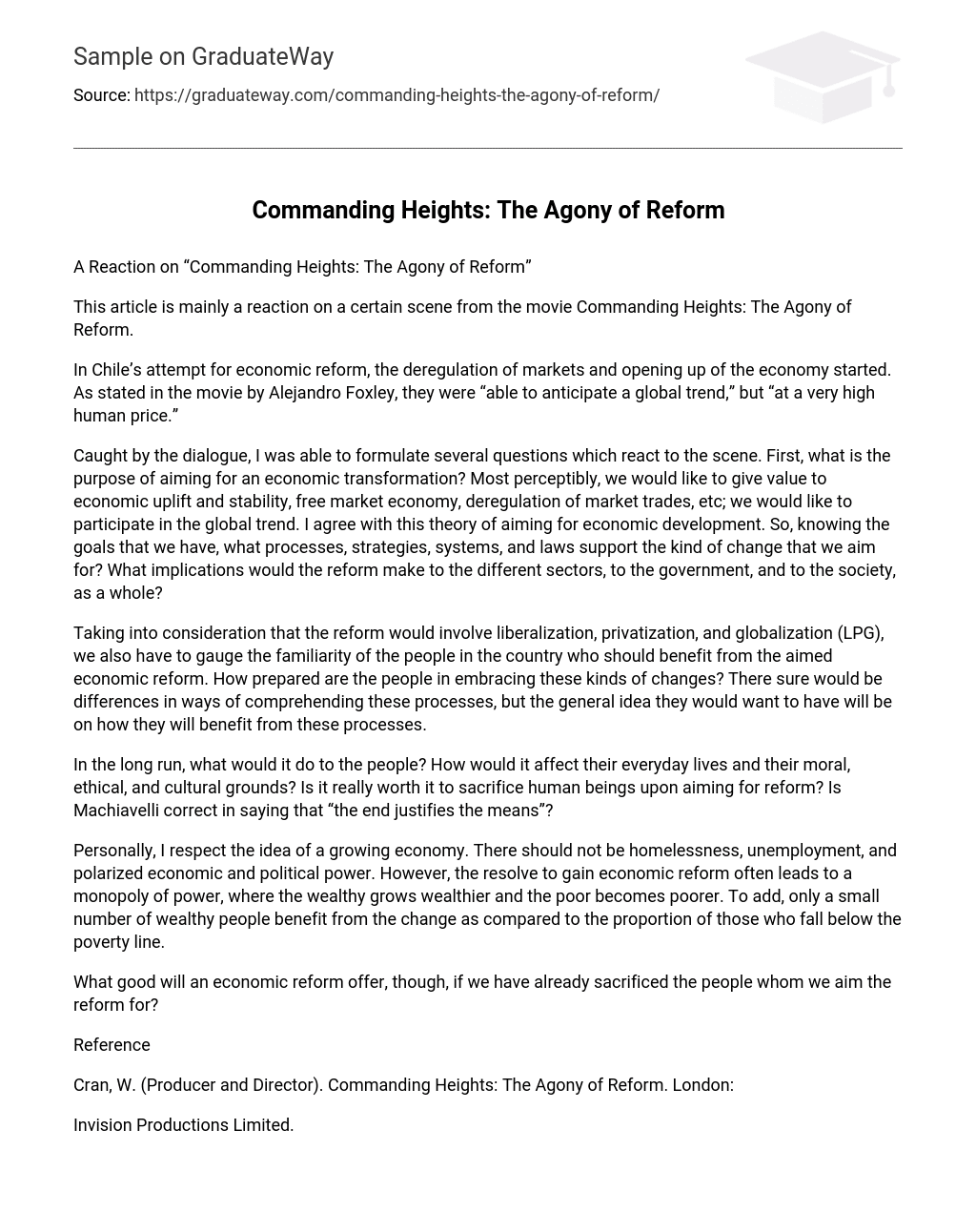A Reaction to Commanding Heights: The Agony of Reform
This article is mainly a reaction to a particular scene from the movie Commanding Heights: The Agony of Reform.
Chile attempted economic reform by deregulating markets and opening up the economy. As Alejandro Foxley stated in the movie, they were able to anticipate a global trend but at a very high human price.
Caught up in the dialogue, I was able to formulate several questions that react to the scene. Firstly, what is the purpose of aiming for economic transformation? Most noticeably, we would like to give value to economic uplift and stability, a free market economy, and deregulation of market trades. We would also like to participate in the global trend. I agree with this theory of aiming for economic development. So, knowing our goals, what processes, strategies, systems and laws support the kind of change we aim for? What implications would these reforms have on different sectors of society as a whole?
Considering that the proposed economic reform would involve liberalization, privatization, and globalization (LPG), it is important to assess the level of familiarity among the people in the country who stand to benefit from these changes. How prepared are they to embrace such transformations? While there may be variations in their understanding of these processes, their primary concern is likely how they will benefit from them.
In the long run, what impact would it have on people’s everyday lives and their moral, ethical, and cultural values? Is it truly justifiable to sacrifice human beings in pursuit of reform? Does Machiavelli’s assertion that the end justifies the means” hold true?
Personally, I respect the idea of a growing economy. However, it is unacceptable to have homelessness and unemployment or polarized economic and political power. Unfortunately, the pursuit of economic reform often results in a concentration of power where the wealthy become even wealthier while the poor become poorer. Moreover, only a small number of wealthy individuals benefit from these changes compared to those who fall below the poverty line.
What good will economic reform offer if we’ve already sacrificed the very people it’s intended to help?
Reference.
Cran, W. (Producer and Director). Commanding Heights: The Agony of Reform. London.
Invision Productions Limited.





